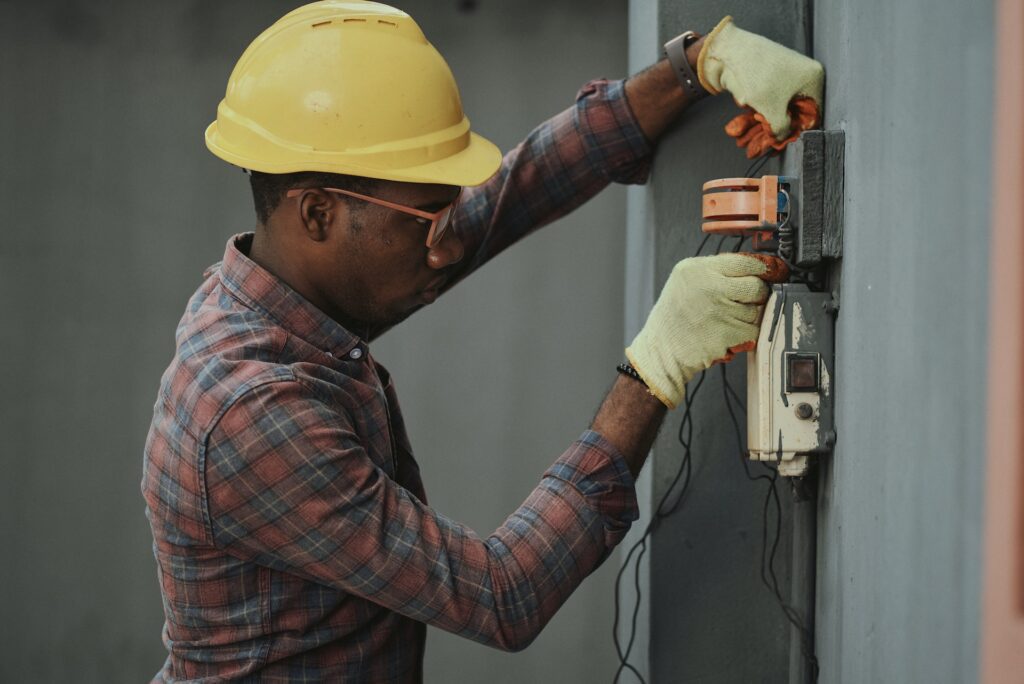
Residential Inspection Checklists: Why Permit Expediters Are Vital
Whether you’re buying or selling a home, obtaining a residential house inspection is highly recommended. An inspection will inform you of any issues that might be affecting the home as well as the appliances and systems that are part of it. During this type of inspection, a professional inspector will examine and evaluate each room and aspect of the home.
Once they complete the inspection, they’ll compile all their observations in a single report that you’ll receive. To make sure you ask the right questions and know what to expect from this process, you should have a residential inspection checklist that you can reference whenever you need it. This guide delves into residential inspection checklists and why permit expediters are crucial when inspecting a home.

Understanding Residential Inspections
Home inspections are an important step in buying or selling a home. A residential inspection involves a visual examination of the home’s systems and physical structure. If the inspector detects problems after a buyer has signed a purchase agreement with the homeowner, they can enter negotiations. The buyer might ask the seller to make repairs before closing or reduce the home’s price. Most purchase agreements contain contingencies that allow the buyer to exit the transaction without losing their earnest money deposit.
Residential inspections are needed in several situations. For example, buyers need to obtain an inspection to make sure there aren’t any major issues with the property that the seller hasn’t disclosed. A seller can also benefit from getting an inspection before listing their home on the market. It allows them to make timely repairs and maintain the property’s value.
These inspections are also required when building a new home from scratch. The local planning department will likely order several inspections during the construction process to make sure that the structure matches the building plans.
Home Inspection Checklist for Buyers
When you’re buying a home, you need a checklist on hand to make sure the inspector reviews every aspect of the property you’re about to purchase. Below is a comprehensive home inspection checklist for buyers.
Foundation and framing:
- Sides of home look straight, not bowed
- Foundation appears to be in good condition with no major cracks
- Door frames and windows are in good shape
- Drainage moves away from the home, which means that there’s no standing water around the foundation
- Crawl spaces are easy to access when dealing with plumbing
- Septic tank isn’t leaking
Exterior condition:
- Gutters drain properly and show no signs of decay
- Chimneys are undamaged
- Paint isn’t stained or flaking
- Siding is in good condition and doesn’t consist of any cracks
- No sagging along interior walls
- Detached shed, fence, and garage don’t have any rotted wood or signs of termites
Roof assessment:
- There are no cracks or obvious patches in flat roofs
- Wood shingles aren’t rotted or decayed
- Composition shingles aren’t affected by cupping or curling
- No signs of extra tar or caulk on the roofing materials
- Exterior vents are clean
- No stains or decay with the fascia and soffits
- Gutter joints are properly sealed with no sagging or bending
- Chimneys are correctly flashed and don’t have large cracks
Plumbing and electrical systems:
- Hot water temperature can’t reach higher than 125 degrees Fahrenheit
- Water heater isn’t rusting
- Water pressure is acceptable
- Pipes aren’t damaged or leaking
- There are no exposed electrical splices
- Service panel comes with the standard capacity
- Wiring is in great condition
- Cables are properly secured
Insulation and pest inspection:
- No gaps or compressions in the insulation
- Wall insulation doesn’t contain voids or gaps
- All gaps in windows and doors are sealed with caulking or weatherstripping
- There are no visible rodents or bugs in the home
- Attic is free of termite tunnels
- No evidence of nesting, including loose rags, cardboard, or paper
When you’re buying a home, understanding these checklist items is needed to ensure there isn’t any major damage that the homeowner didn’t tell you about.

Home Inspection Checklist for Sellers
Before listing your home on the market, it might be a good idea to obtain a home inspection. During this process, the inspector will assess everything from the electrical, plumbing, and heating systems to the roof, gutters, and siding. A pre-listing inspection allows you to show potential buyers that you’re being transparent about the home’s current condition. It builds trust with them, which may allow you to avoid lengthy negotiations and get your home off the market faster. A pre-listing inspection will:
- Identify existing issues that need to be addressed
- Increase buyer confidence
- Reduce your liability by making sure all issues are mentioned upfront
Most of the same areas that are evaluated during a buyer’s inspection should also be looked at when selling a home.
Roof, gutters, and siding assessment:
- Siding and stucco wear and tear
- Roof isn’t missing shingles
- Flashing and fascia on the roof are in good condition
- Gutters aren’t damaged or clogged
- Chimney cap is in good shape and doesn’t contain any cracks
Windows, doors, and foundation inspection:
- Foundation doesn’t consist of any major cracks that might weaken it
- Windows are in good condition without damaged screens or cracks
- Moisture isn’t getting into the panes of the windows
- Wood frames around the home’s doors are free of cracks and rot
Evaluation of electrical plumbing, and heating systems:
- No evidence of leaks or damage to visible pipes
- Water pump doesn’t short-cycle
- Well water test has acceptable results
- Water heater is vented properly and shows no signs of rust
- Service panel has adequate capacity
- Breakers and fuses aren’t overheating
- Visible wiring is in good condition
- No rust on the cooling unit
- Ductwork is free from obstructions
- Air filters are clean
- No asbestos in water or heating pipes
New Home Inspection Checklist
Congratulations on buying a new home! While a new home offers many advantages over a lived-in one, there’s no guarantee that everything will be perfect from day one. If the construction crew made mistakes or rushed to meet project deadlines, you could experience major issues later on. By identifying these problems when you first move in, you should save a considerable amount of time and money. The primary issues you should be on the lookout for when inspecting your newly built home include the following:
- Cracks or uneven flooring around the foundation
- Doors not closing properly
- Poor insulation in the attic
- Missing shingles on the roof
- Bad wiring around your home
- Improper grounding of outlets
- Hidden leaks that might be causing water damage
- Smoke and carbon monoxide detectors not being turned on
- HVAC system filters are dirty

The Role of Permit Expediters in Residential Inspections
Permit expediters are responsible for helping property owners and developers get through the building permit approval process. When you construct a new home, several permits are needed to ensure everything adheres to local building codes and zoning regulations. Before you receive approval for your permit, the LADBS will review your building plans and other documentation to make sure that there aren’t any mistakes that need to be corrected.
The approval process for new home builds can be time-consuming. You may need to wait weeks or months if you don’t have a permit expediter by your side. Permit expediters will find these problems before you apply. They’ll also speak directly with the building department during the approval process to speed things up.
Once the main permit is approved, builders and property owners can begin the construction process. To make sure the project aligns with the approved building plans, several inspections will be performed at different stages of the construction process.
Permit expediters facilitate these inspections by getting the building plans right in the first place. They’ll evaluate your building plans before the application is approved to ensure compliance with local codes and regulations. Keep in mind that your project can be delayed considerably if problems are found during the inspection. Since the permit expediter ensures compliance, you should be able to pass each inspection without issue.
Conclusion
Having a residential inspection checklist on hand when you’re buying, selling, or building a home is necessary to avoid costly problems down the road. Permit expediters are able to streamline the inspection process when new homes are being built by ensuring compliance with local and state building codes. For informed decision-making in real estate transactions, seek professional inspections and permit expediting services.

Jason Somers, President & Founder of Crest Real Estate
With over 15 years of professional experience in the Los Angeles luxury real estate market, Jason Somers has the background, judgement and track record to provide an unparalleled level of real estate services. His widespread knowledge helps clients identify and acquire income producing properties and value-ad development opportunities.
Learn more about Jason Somers or contact us.



